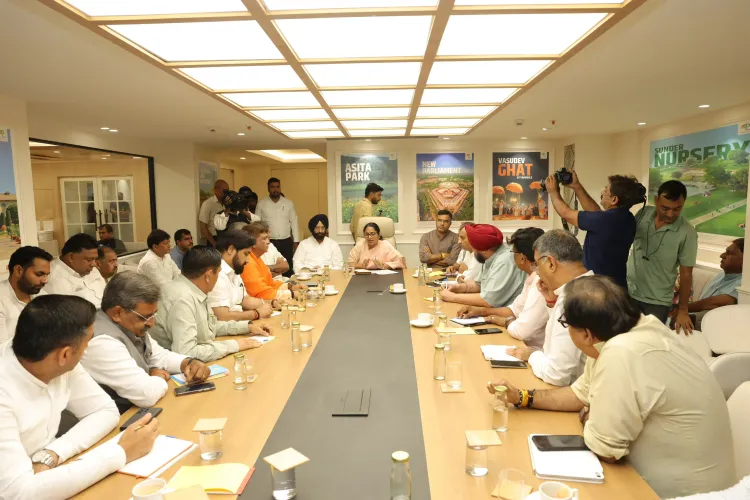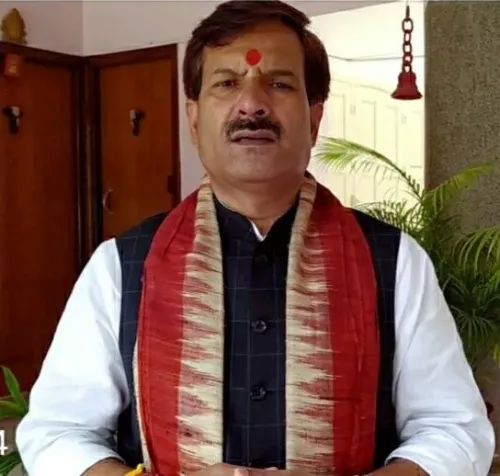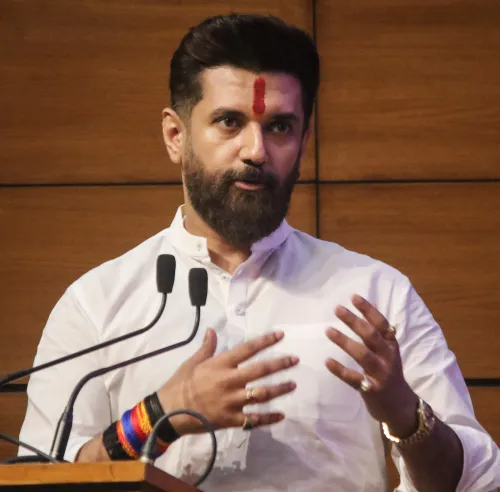Will the Education Bill Regulating School Fees Transform Private Education in Delhi?

Synopsis
Key Takeaways
- Regulation of school fees: The Bill seeks to prevent arbitrary increases in fees by private schools.
- Parental protection: It offers a framework to safeguard parents from harassment by school authorities.
- Government oversight: The state government will have the authority to direct fee adjustments.
- Transparency in fee structure: Clear guidelines for fee fixation will be established.
- Impact on private education: The Bill could reshape the landscape of private schooling in Delhi.
New Delhi, Aug 2 (NationPress) Delhi Chief Minister Rekha Gupta announced on Saturday that the Education Bill designed to regulate school fees in private institutions across the national capital is set to be discussed during the Assembly session commencing on August 4.
The Delhi School Education (Transparency in Fixation and Regulation of Fees) Bill represents a decisive initiative by the BJP government to address the issue of private schools that disregard the education department's directives against unjustifiable fee hikes.
CM Gupta informed reporters at the Secretariat that the education Bill would be presented in the Assembly for thorough examination from August 4 to 8.
The proposed legislation aims to manage fee increases in schools while establishing penalties for non-compliance, having received the State Cabinet's approval in April of this year.
Following this, the Delhi government enacted the Delhi School Education (Transparency in Fixation and Regulation of Fees) Ordinance, 2025.
This initiative is expected to provide significant relief to thousands of students attending 1,677 private schools, as well as their families in the city.
Previously, CM Gupta noted that the legislation would extend to aided schools, thereby alleviating the concerns of parents who frequently report harassment from school authorities.
"The Bill outlines the entire process and guidelines for fee determination and clearly defines the roles of various parties, including school managements, the education directorate, and parents," she stated.
Delhi Education Minister Ashish Sood had earlier conveyed to IANS, "The government will now possess the authority to instruct institutions to lower or increase fees."
He emphasized, "The Bill grants the state government the power to take action against schools that fail to comply," suggesting that these provisions may be implemented during the current academic term.
To lay the groundwork for this legislation, CM Gupta mentioned that district magistrates were dispatched to engage with parents who alleged mistreatment by school managements.
"The District Magistrates compiled their findings after conversing with parents and conducting an audit on the procedures followed for fee hikes," she added.
She asserted that this legislation marks a pivotal move towards policy reform, as previous administrations had not made any effort to establish a legal framework enabling the Delhi government to regulate fee increases in private schools.
"The draft legislation aims to eliminate uncertainty," she remarked, noting that the only reference to fees in the Delhi School Act of 1973 is found in Section 17 (3), which does not empower the state government to set the fees that a school may charge.
Section 17(3) of the Act grants the authority to determine fees to the school manager, while only addressing limits on the collection of additional charges.
According to Section 17(3), "The manager of every recognized school shall, before the start of each academic session, submit a comprehensive statement of the fees to be charged during the upcoming academic year to the Director, and except with the prior approval of the Director, no such school shall impose charges exceeding those specified in this statement during that academic session."









